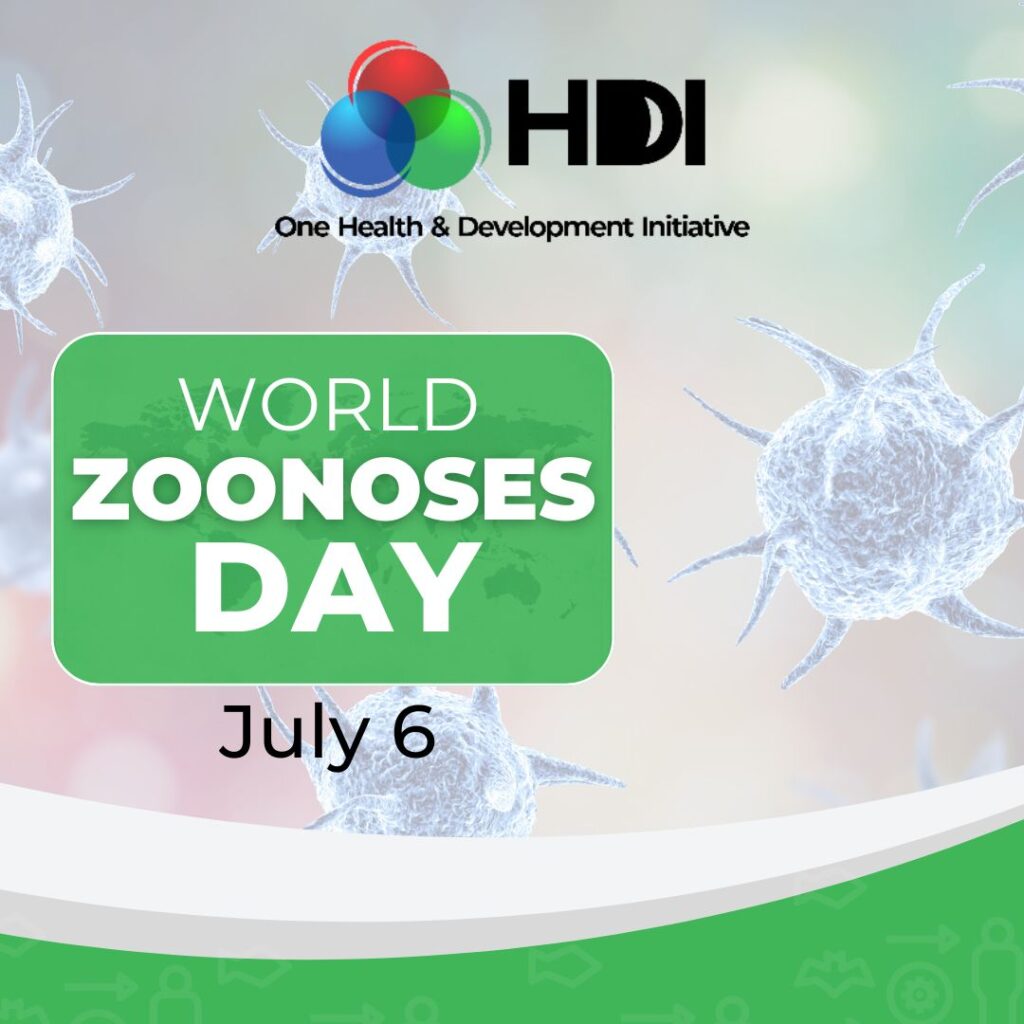
Every year, on July 6, the global community comes together to commemorate World Zoonoses Day. This is to advocate for strategies to prevent and control zoonotic diseases, which are diseases transmitted from animals to humans. This year’s theme, “Preventing the Spread of Zoonotic Diseases,” highlights the importance of proactive measures to safeguard public health through an integrated One Health approach.
The History of World Zoonoses Day
World Zoonoses Day marks the anniversary of the first successful rabies vaccination, administered by Louis Pasteur, a French biologist, on July 6, 1885. Pasteur’s pioneering work not only rescued a young boy bitten by a rabid dog bite but also established the groundwork for modern science of vaccine development. This historic event reminds of the critical need for continued vigilance and innovation in the fight against zoonotic diseases.
Understanding Zoonotic Diseases
Pathogens like bacteria, viruses, parasites, and fungi transmit zoonotic diseases between animals and humans. Common examples include rabies, avian influenza, Ebola, and anthrax. These diseases can be spread through direct contact with animals, consumption of contaminated food or water, or vectors such as mosquitoes and ticks. The impact of zoonotic diseases extends beyond human health, affecting animal populations, economies, and biodiversity.
How Do We Prevent Zoonotic Diseases?
It is crucial that efforts are directed at preventing the spread of zoonotic diseases.
- Adequate Surveillance and Monitoring: Robust surveillance systems are crucial for early detection and response to zoonotic outbreaks. This includes monitoring wildlife, livestock, and human populations for signs of emerging diseases.
- Vaccination and Immunisation: Vaccination programmes for both humans and animals play a vital role in preventing zoonotic diseases. For instance, vaccinating dogs against rabies can significantly reduce human cases of the disease. As an organisation, we have actively implemented this through initiatives such as Project Eliminate Rabies and the Anthrax Intervention Programme.
- Education and Awareness: Public education campaigns can inform communities about the risks of zoonotic diseases and promote practices that reduce exposure, such as proper hygiene, safe food handling, and avoiding contact with wild animals.
- Research and Innovation: Investing in research to understand the mechanisms of zoonotic transmission and develop new diagnostic tools, treatments, and vaccines is essential for staying ahead of emerging threats.
- Environmental Management: Protecting natural habitats, controlling vectors, and ensuring sustainable agricultural practices can reduce the risk of zoonotic diseases. This includes measures like reforestation, water sanitation, and integrated pest management.
- Effective Policy Development and Collaboration: To address zoonotic diseases, we need effective policies and regulations that promote One Health principles. This requires collaboration between governments, health organisations, veterinary services, and environmental agencies.
Why is the One Health Approach Important in Fighting Zoonotic Diseases?
The One Health approach acknowledges the interconnectedness of human, animal, and ecosystem health. By fostering collaboration across disciplines and sectors, One Health aims to achieve optimal health outcomes for all. Zoonotic diseases, which account for over 60% of known infectious diseases, are a prime example of why this integrated approach is essential. Addressing zoonotic threats requires coordinated efforts in surveillance, research, education, and policy-making to effectively manage risks at the human-animal-environment interface.
What can you do?
Everyone has a role to play in preventing zoonotic diseases. Individuals can take simple steps, such as maintaining regular veterinary check-ups and keeping pets vaccinated, practicing good personal hygiene (including regular handwashing) and food safety, supporting wildlife conservation and avoiding contact with wild animals, and staying informed about local and global health issues.
In conclusion, World Zoonoses Day is a reminder of the ongoing challenges posed by zoonotic diseases, as well as the importance of a united front in addressing these threats. By embracing the One Health approach, we can create a healthier, safer world for humans, animals, and ecosystems. As we commemorate this day, let us reaffirm our commitment to preventing the spread of zoonotic diseases and managing threats for future infections.





